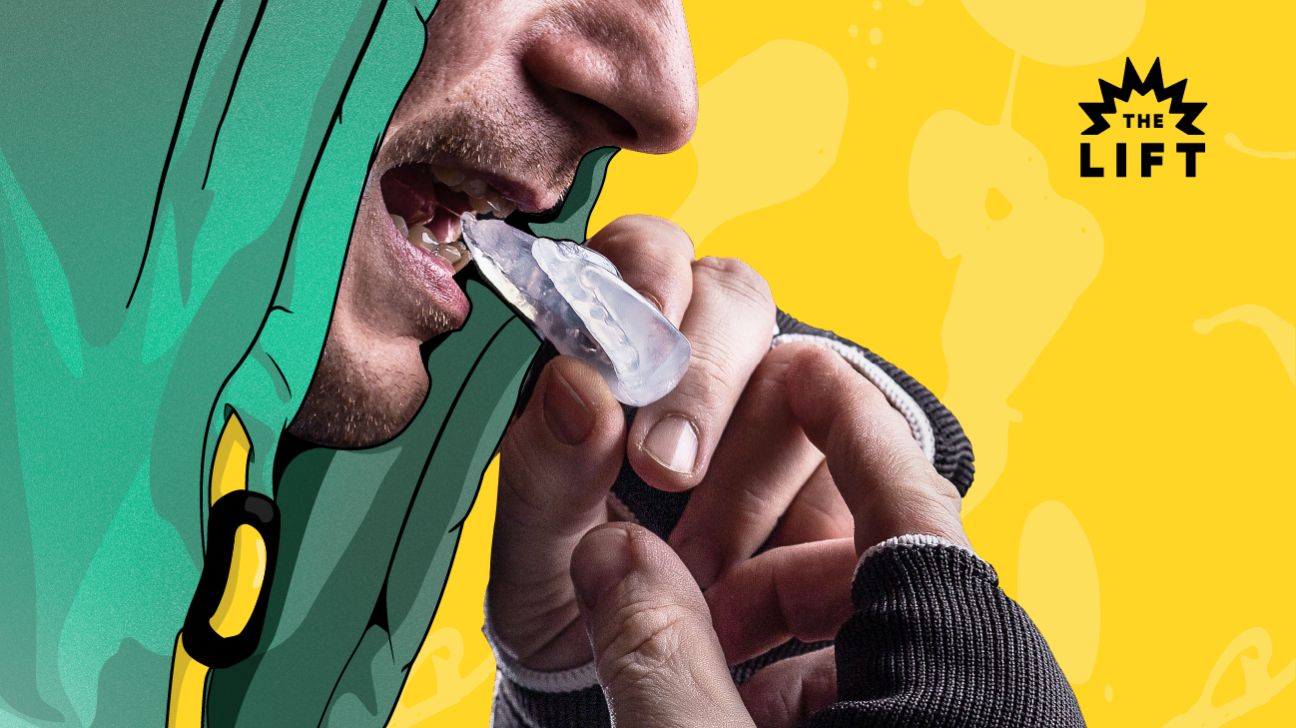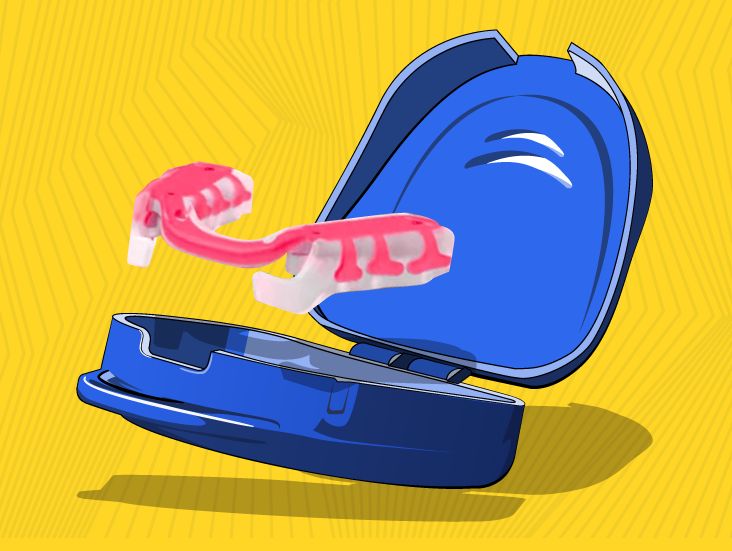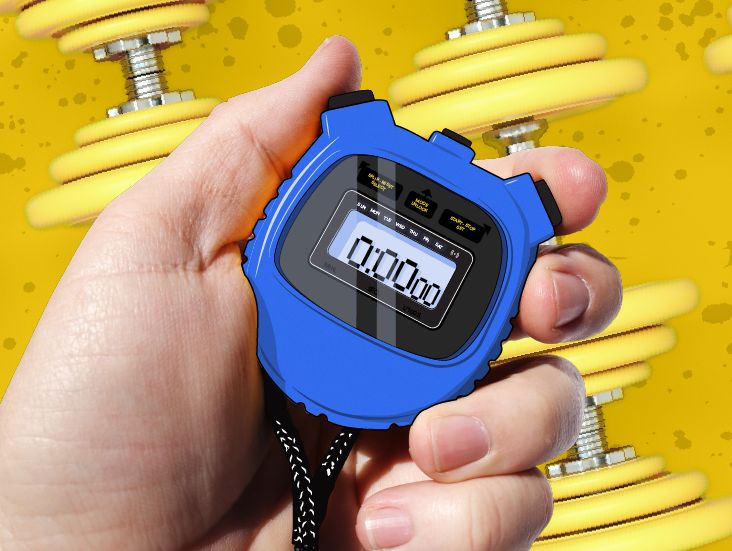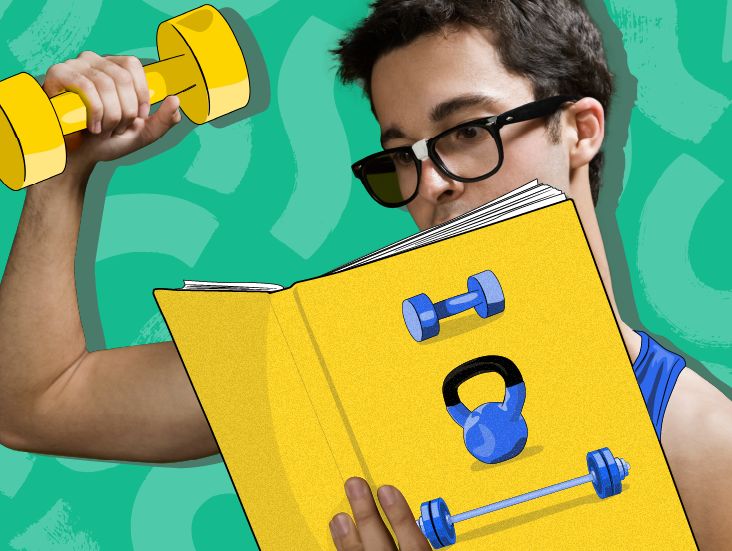
You may not think twice about popping in a mouthguard to participate in a contact sport like football, rugby, or MMA. But regular ol’ barbell swingers? Yep, according to dentists and strength and conditioning coaches, anyone who lifts any kind of weights (i.e. powerlifters, CrossFit fanatics, Olympic lifters, boot camp baddies, and barbell bunnies) should be lifting with a mouthguard in.
Read on to learn exactly why it’s recommended you wear a mouthguard while you grind through your strength session.
“The majority of people who lift clench their teeth together with maximum intensity while they do so,” according to Jeffrey S. Haddad, DDS of Michigan Center for TMJ and Sleep Wellness.
He notes that this is not actually a form flub, but an intentional move that can increase overall power output. “Research shows that clenching can actually help athletes access more of their strength and power,” he notes.
But clenching can have adverse effects on your teeth, as well as the muscles in your face, jaw, and neck.
“A mouthguard can help protect the teeth from all that force,” says Haddad. “It can also help balance a person’s bite so that when they are clenching, less damage can occur.”
Your teeth may be severely impacted.
Clenching your teeth together while you exercise might do some real damage. According to general and cosmetic dentist Dr. Angelique Freking with Park Slope Dental, fractured teeth, eroded enamel, and strain headaches are all potential risks of going bare-bones.
She explains that the oral barrier absorbs some of the force and thus greatly minimizes that risk of damage.
“Individuals who grind their teeth other times of the day [at work or while they sleep] are especially susceptible to injury from clenching during exercise,” she says. Why? Because their enamel is likely already weakened.
Are athletic mouthguards similar to nightguards?
Athletic mouthguards are not the same as nightguards.
Sure, both sit in your mouth, but the material and shape of the two are different.
“Athletic mouthguards are thick, soft to disperse forces from impact, and extend up and over the teeth onto the soft tissue to protect your jaw bones from fracturing,” explains Freking.
Nightguards for bruxism — that’s medical-speak for nighttime clenching and grinding — are completely different.
“Nightguards are made of a thinner material, come up lower on the teeth, and will not protect from high velocity impacts or jaw fractures that can occur during athletics,” she explains. The more you know!
Mouthguards don’t just protect your chompers, they can help you hit a PR. Here’s how.
1. They remind you to bite
Mouthguards are a tactile reminder to bite down while you lift, which helps the body tap into its full strength.
One small 2015 study found that athletes who wore a mouthguard while lifting felt stronger and less encumbered than people who free-birded it.
2. They support jaw position
Mouthguards ensure that when you bite down, you’re biting down in the most optimal way possible.
“Mouthguards help position your jaw in a supported position,” says Haddad. And lifting [and clenching] when your jaw is in the right place is e-x-t-r-a-o-r-d-i-n-a-r-i-l-y beneficial.
“Lifting with a jaw in a nonsupported position is kind of like lifting with a displaced hip,” he says.
“Just as the body can function most-optimally when your hips are in the correct position, the body also functions most-optimally when the jaw is in the right position,” he says.
3. They make it easier to breathe
Finally, it’s easier to breathe when your jaw is in the right place, according to Haddad. “It opens up your airways.”
Sure, this doesn’t really come into play for one-rep maxes. But for volume sets, the payoff is tremendous.
TBH, if you lift regularly and you share that info with your dentist, they’ll probably recommend a guard without any prompting. These days the American Dental Association recommends participants of almost any sport wear a mouthguard.
“Most dentists will recommend a custom-fit mouthguard,” says Haddad. “These mouthguards are made from exact molds of a person’s teeth and precisely fitted for the most comfort, best fit, and maximum benefits.”
The main downside of these guards is they can put you out anywhere from $200 to $1000 buckaroos, depending on your insurance plan. If this is outside your budget, your dentist will pair you with an over-the-counter option.
Bottom line: Protecting your teeth and jaw while lifting is just as important as protecting your back and neck while lifting.





